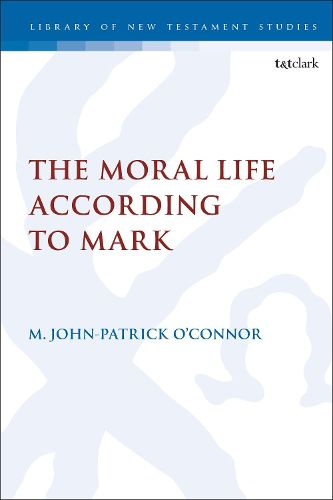Readings Newsletter
Become a Readings Member to make your shopping experience even easier.
Sign in or sign up for free!
You’re not far away from qualifying for FREE standard shipping within Australia
You’ve qualified for FREE standard shipping within Australia
The cart is loading…






M. John-Patrick O'Connor proposes that - in contrast to recent contemporary scholarship that rarely focuses on the ethical implications of discipleship and Christology - Mark’s Gospel, as our earliest life of Jesus, presents a theological description of the moral life.
Arguing for Mark’s ethical validity in comparison to Matthew and Luke, O'Connor begins with an analysis of the moral environment of ancient biographies, exploring what types of Jewish and Greco-Romanic conceptions of morality found their way into Hellenistic biographies. Turning to the Gospel’s own examples of morality, O'Connor examines moral accountability according to Mark, including moral reasoning, the nature of a world in conflict, and accountability in both God’s family and to God’s authority. He then turns to images of the accountable self, including an analysis of virtues and virtuous practices within the Gospel. O'Connor concludes with the personification of evil, human responsibility, punitive consequences, and evil’s role in Mark’s moral landscape.
$9.00 standard shipping within Australia
FREE standard shipping within Australia for orders over $100.00
Express & International shipping calculated at checkout
Stock availability can be subject to change without notice. We recommend calling the shop or contacting our online team to check availability of low stock items. Please see our Shopping Online page for more details.
M. John-Patrick O'Connor proposes that - in contrast to recent contemporary scholarship that rarely focuses on the ethical implications of discipleship and Christology - Mark’s Gospel, as our earliest life of Jesus, presents a theological description of the moral life.
Arguing for Mark’s ethical validity in comparison to Matthew and Luke, O'Connor begins with an analysis of the moral environment of ancient biographies, exploring what types of Jewish and Greco-Romanic conceptions of morality found their way into Hellenistic biographies. Turning to the Gospel’s own examples of morality, O'Connor examines moral accountability according to Mark, including moral reasoning, the nature of a world in conflict, and accountability in both God’s family and to God’s authority. He then turns to images of the accountable self, including an analysis of virtues and virtuous practices within the Gospel. O'Connor concludes with the personification of evil, human responsibility, punitive consequences, and evil’s role in Mark’s moral landscape.